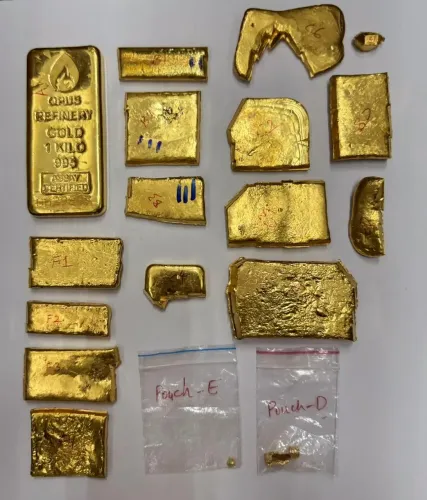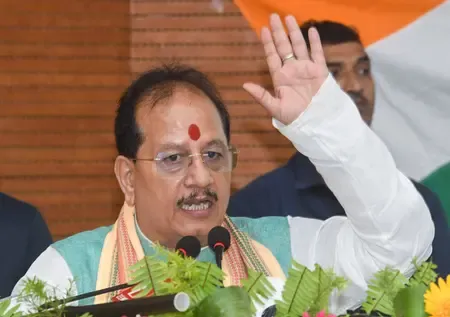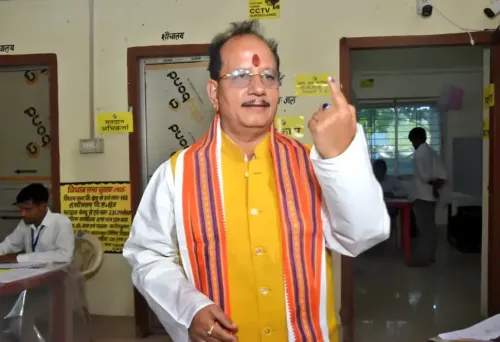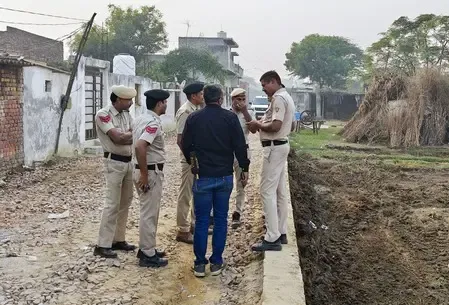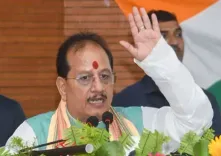How did Jharkhand's Om Prakash Sahu inspire change?

Synopsis
Key Takeaways
- Om Prakash Sahu exemplifies resilience and transformation.
- The PMMSY initiative is pivotal for community upliftment.
- Fish farming offers viable alternatives to violence.
- Local administration plays a crucial role in empowering communities.
- Grassroots movements can lead to significant social change.
Gumla, July 28 (NationPress) In the recent episode of his popular radio show 'Mann Ki Baat', Prime Minister Narendra Modi praised Om Prakash Sahu, a resident of Kumhari village in the Basia block of Jharkhand’s Gumla district, for his remarkable journey from conflict to contribution. Once a region afflicted by Maoism, Basia is now experiencing a quiet revolution, largely due to the Pradhan Mantri Matsya Sampada Yojana (PMMSY), which empowered Sahu to initiate significant change.
Sahu recounted, the start was fraught with challenges. Despite facing threats and opposition, he remained resolute. His pivotal moment arrived with the launch of the PMMSY, which provided hope, resources, and essential training. With the assistance of the district administration, he constructed fish ponds and soon became a beacon of transformation.
"Gumla was deeply affected by Maoism. There was a lack of development, no job opportunities, and people lived in fear. However, post-2008, we began resisting Maoist activities. I lost many friends during this fight,” Sahu shared with IANS.
"My introduction to the PMMSY scheme came from Jyoti Lakra, who encouraged me to seek a livelihood through fish farming. Today, I am earning a decent living. I urge the youth to steer clear of Maoism; a better future awaits them."
Back in 2008, the villages of Basia were nearly deserted. Agricultural lands were left untended, and many youths migrated in search of jobs. The area was under the control of PLFI militants, and life was fraught with uncertainty. Yet, amidst this fear and despair, a wave of change began to emerge.
Sahu, initially drawn to violence, made a transformative choice to embrace peace and productivity. He ventured into fish farming and gradually motivated others to follow suit. His journey encouraged numerous former extremists to swap guns for fishing nets, fostering a grassroots transformation that was both economically and socially beneficial.
The local administration also played a crucial role in the region's resistance against Maoism. Former Deputy Commissioner Aradhana Patnaik issued gun licenses to peace committee members, including Sahu, empowering locals to confront the militants.
Kusum Lata, the District Fisheries Officer, expressed pride in Sahu’s recognition by the Prime Minister.
"This is a proud moment for all of us. Om Prakash Sahu, Jyoti Lakra, and Lakhan exemplify how fisheries can provide dignified livelihoods. Their success is truly inspiring," she remarked.
The PMMSY, initiated by the Ministry of Fisheries, Animal Husbandry, and Dairying, aims to foster a “Blue Revolution” through ecologically sustainable, economically viable, and socially inclusive development in the fisheries sector.
With a total investment of Rs 20,050 crore, the PMMSY is being rolled out across all states and Union Territories from FY 2020-21 to FY 2024-25. In the Union Budget for 2023–24, an additional sub-scheme was announced, involving an investment of Rs 6,000 crore to support fish vendors, fishermen, and micro and small enterprises, thereby enhancing value chains and expanding markets.
Thanks to this initiative, over 150 families in the Basia subdivision are now involved in fish farming. The region, once notorious for violence, is now celebrated for self-sufficiency and sustainability, driven by the determination of individuals like Sahu and the support of government programs aimed at uplifting communities.

